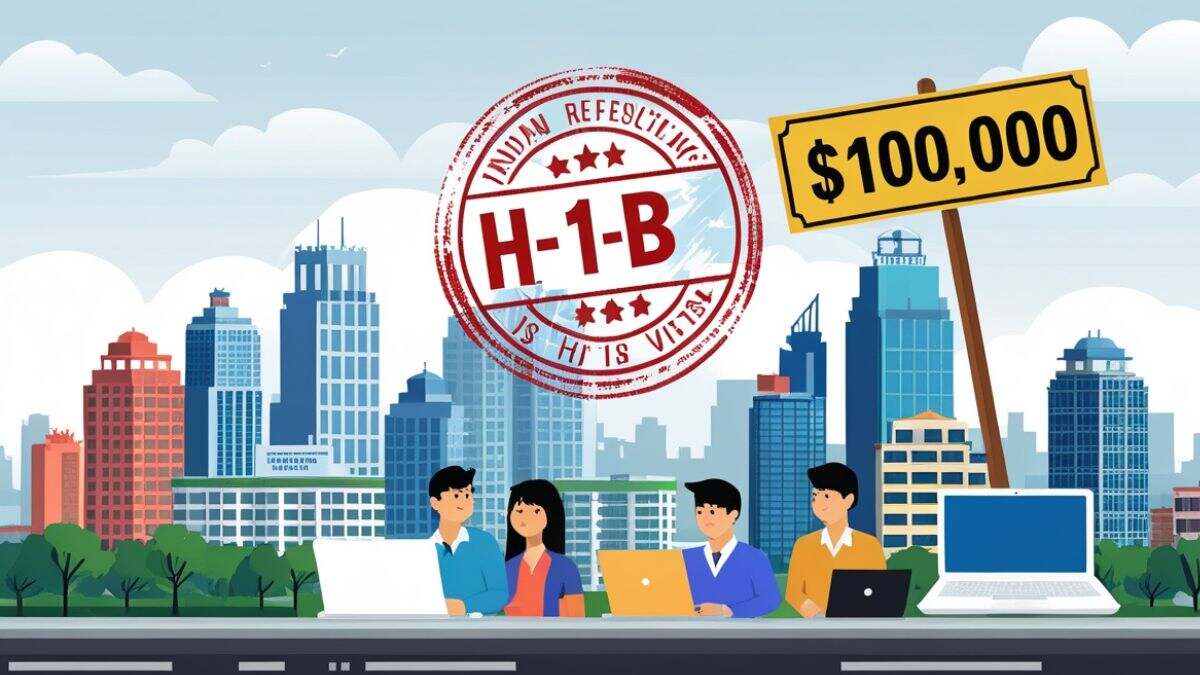The US computer industry heavily relies on the H-1B visa program to employ qualified workers from India, but it has come under fire after Donald Trump imposed an annual cost of $100,000.
Following the introduction of two distinct pieces of legislation by three senators to address “loopholes” used by for-profit and non-profit firms, U.S. legislators began to tighten regulations for the H-1B and L-1 worker visa programs on Monday.
Chuck Grassley, a Republican from Iowa, and Dick Durbin, a Democrat from Illinois, who are the top Republicans and Democrats on the Senate Judiciary Committee, tabled a measure that would, among other things, increase salary and hiring requirements, require public job listings, and restrict visa eligibility.
“When elite talent is unavailable domestically, Congress established the H-1B and L-1 visa programs as restricted routes for companies to hire them. However, a lot of firms have utilized them to replace American workers with low-cost foreign labor throughout the years,” Grassley noted.
Durbin said that despite submitting visa applications for foreign workers at low salaries and unfavorable working conditions, large corporations lay off thousands of American workers. He said, “Congress must intervene to save American workers and repair our flawed immigration system.”
There are similarities between Grassley and Durbin’s plan and one that was initially put out in 2007 and supported by independent congressman Bernie Sanders from Vermont, Republican Tommy Tuberville from Alabama, and Democrat Richard Blumenthal from Connecticut.
Separately, Republican Tom Cotton of Arkansas introduced legislation that would limit the number of foreign workers that colleges, research organizations, and non-profits may recruit.
Bringing in awakened and anti-American teachers from other countries should not give colleges and institutions preferential treatment. On his website, Cotton said, “My bill removes these loopholes that institutions have exploited for far too long.”
Companies may move current personnel from foreign operations to the US using the L-1.
President Donald Trump hit the H-1B visa program, which the US technology industry uses extensively to employ qualified workers from China and India, with a $100,000 yearly fee last month. This is a huge increase from the existing cost of $215.
At the same time, the Trump administration declared its intention to switch from the present lottery method (of allocation) to a weighted selection procedure. The Department of Homeland Security suggested choosing employees who were in the top of four pay tiers.
Consequently, an employee who receives $162,528 in pay annually will get four “lottery tickets,” whilst those in lower tiers would receive fewer. The lowest-tier applicants will only get one.
According to statistics from the US Citizenship and Immigration Services, 71% of all H-1B permits are awarded to Indians. These might cost Indian IT behemoths like TCS, Infosys, and Wipro billions of dollars. Reduced employment in India or the repatriation of jobs there would be a direct result.
In addition to the one-month discussion period, the Indian government has accepted the proposed regulation modifications. The Ministry of External Affairs emphasized how skilled talent mobility and exchanges have greatly aided in the development of technology and innovation in both India and the United States.
The trek may have humanitarian repercussions and upset families, according to the administration, which is researching these and other hike-related issues.

